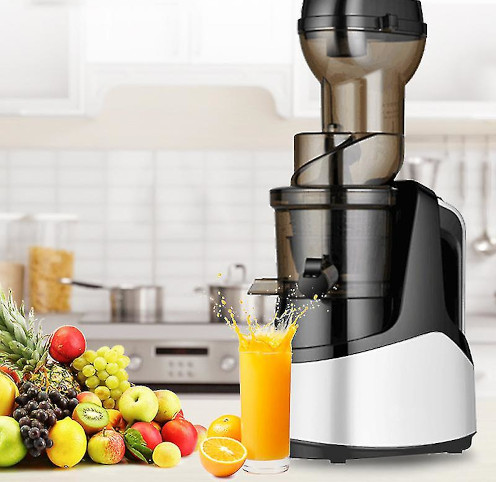Choosing a professional juicer
In restaurants and cafés, customers are keen to purchase healthy drinks for themselves and their children. One of these drinks is freshly squeezed juice. If you decide to include juices in your bar, restaurant or café menu, you may want to consider purchasing a professional juicer.
There are several main types of professional juicers: citrus, centrifugal and slow. Each model has its own purpose (for squeezing hard and/or soft ingredients). The mechanisms of these juicers also vary. They determine the taste and colour of the juice, as well as the amount of fruit or vegetables you’ll need to squeeze. You’ll find out how to select the right professional juicer in this article.
PROFESSIONAL JUICER OR BAR BLENDER?
Some catering managers looking for a juicer ask us whether they should choose a bar blender or a juicer? Our answer is simple: tasty and nutritious juice happens when the pulp of the ingredients is squeezed out in a highly-efficient way, and that`s only possible with a professional juicer. A bar blender is useful for making other drinks, such as smoothies. Therefore, for economical and efficient juicing we recommend using a juicer.
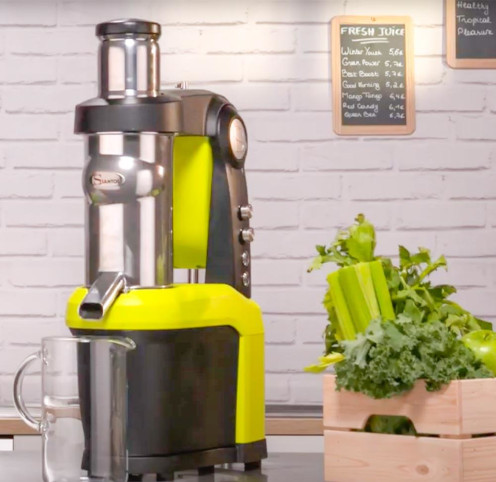
These are the different types of juicers:
- Citrus juicer
- Centrifugal juicer
- Slow juicer
Each of them have different features.
CITRUS JUICERS
Mechanical citrus juicers have a powerful engine and a cone mechanism that juices oranges, grapefruit, limes and lemons. The cone rotates automatically to scoop out the fruit, while the juice flows into its dedicated container.
For kitchen workers, this juicer is easy to use. They can simply cut the fruit in half and squeeze the slices into the rotating cone. How you squeeze the juice will depend on the model you choose. The most common ways are squeezing the fruit with an equipment lever, or with a special holder by hand. In both cases, you will extract the juice much faster than with a manual juicer.
If you need a lot of citrus juice, such as orange, all the time, an automatic orange juicer may be more useful. Designed for heavy use, it squeezes around 100 litres of juice per hour, making it particularly efficient for hotels, bars and gas stations with many customers.
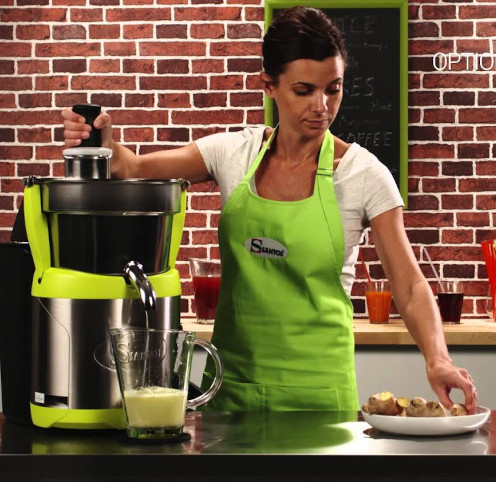
CENTRIFUGAL JUICERS
Centrifugal juicers are used to extract juice from solid fruits and vegetables. You can add ingredients that have been washed but not processed, as any remaining peel, stems or skins will automatically go into a separate container. The centrifugal juicer`s powerful mechanism means that the juice is extracted very quickly, and the machine is also easy to clean.
However, one of the features of a centrifugal juicer is that the mechanism is quite loud. It is better to keep such a juicer in the kitchen, rather than in a bar area. Furthermore, the intense pressure produces foam, requiring extra staff time to skim it off. It also makes the juice from this machine stratify faster than that from a slow-speed juicer, so it`s best to serve the juice to customers straight away.
SLOW JUICERS
Slow juicers are probably the most versatile type of juicer, as they can juice not only vegetables and fruit, but also greens (kale, herbs or sprouts). They have the advantage of cold-pressing technology, which preserves the vitamins and minerals in the ingredients. In addition, the juice squeezed by this machine is slower to stratify and the bright colour of the drink lasts longer.
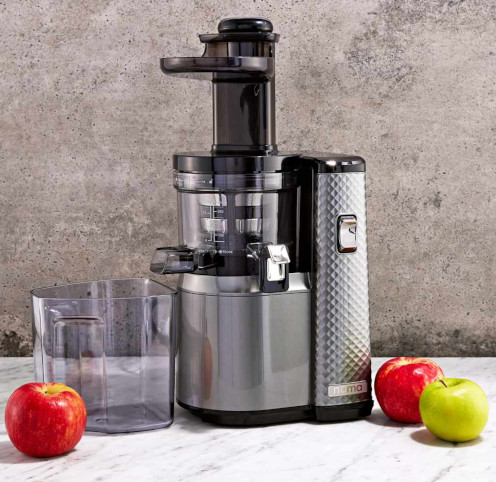
A slow juicer is usually programmed to run at only one speed. The name gives away the fact that it is not as fast as other devices, but it is extremely quiet.
OTHER CHARACTERISTICS OF PROFESSIONAL JUICERS
Once you have learned about the different types of juicers and decided which one suits your needs, take a look at the following equipment features:
- The feeding tube. The diameter of the feeding tube is often an indicator of the power of the juicer – the larger the tube, the more powerful the machine. Wide feeding tubes allow you to add whole fruit or vegetables, saving staff time while speeding up the kitchen work and increasing the juice extraction rate.
- Power. Each juicer has different power voltages, so pay attention to the amount of rotations per minute and energy efficiency. This will determine both how fast you can juice and how much energy you will use.
- Noise level. Pay attention to the location and noise level of the juicer, as loud machines can interfere with the atmosphere of a bar or café.
- Accessories. Bear in mind that workers will work more safely if they use a juicer instead of juicing by hand. The lid also prevents the juice from splashing, so the work is cleaner.
- Maintenance. It is a good idea to choose a juicer that is easy to clean. Determine whether all the parts of the appliance can be put in a dishwasher.
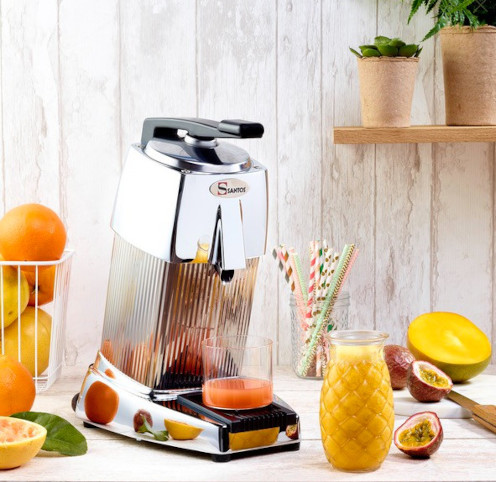
SOME ADDITIONAL TIPS FROM AUDORES
The quality of your equipment is the key to a successful kitchen, so here are a few more tips to help in your search for the right professional equipment.
- Manufacturers. We recommend choosing equipment from reputable manufacturers. For example, our suppliers, Santos, have been in business for over 60 years and remain a world leader. The powerful engines included in this manufacturer`s juicers ensure maximum pressure, and the Santos 65 is probably the most popular model in the AUDORES store. Hendi and Bartscher kitchen equipment also strikes a good balance between quality and value for money.
- Additional bar equipment. If you need chilled drinks, you will benefit from ice generators or ice crushers, bar fridges are useful for juice storage, and juice dispensers are ideal for pouring.
- Sustainability. With the use of high-quality equipment, the vegetable and fruit pulp left over after juicing is suitable for more sustainable uses. For example, you can use the pulp left over from juicing fruit to make smoothies or granola, freeze it in ice cubes, or use it for pancake batter or for baking and desserts.
If you have any further questions, please contact us and we will advise you via email or phone.
